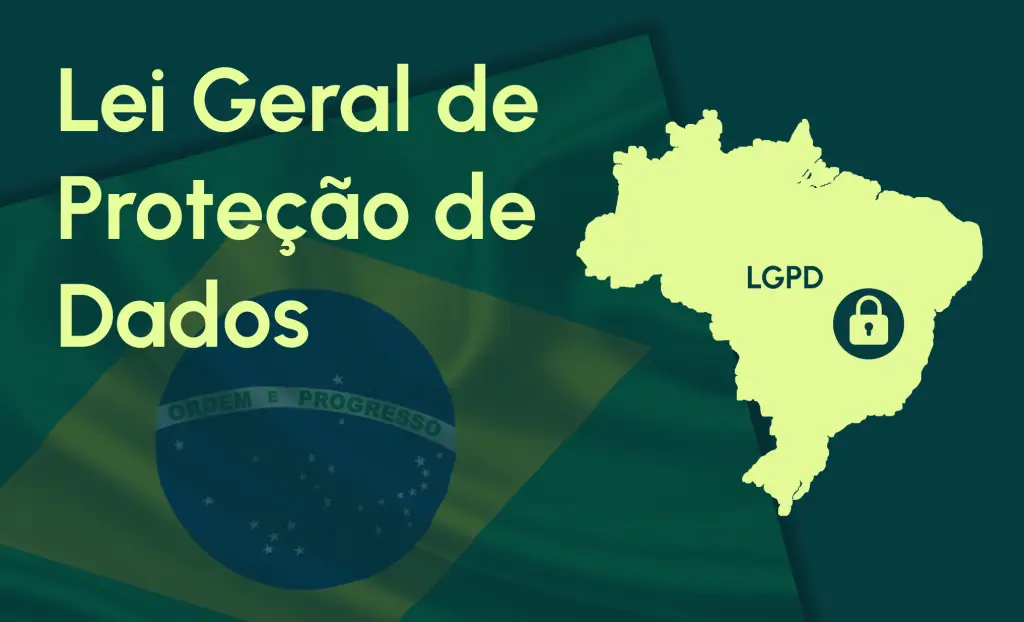Brazil, with over 140 million internet users, holds the title of the largest internet market in Latin America and the fourth largest in the world. Before the LGPD, Brazil had more than 40 federal regulations addressing data protection and privacy, which created a complicated legal framework.
- Overview of LGPD
- Who must comply with LGPD
- Data subject rights under LGPD
- Consequence of non-compliance
- LGPD vs. GDPR
- Fines for non-compliance
- How Consentik ensures LGPD compliance
Overview of LGPD
The Lei Geral de Proteção de Dados (LGPD) is Brazil’s comprehensive data protection law, modeled after the EU’s GDPR. Enacted in 2018 and effective since 2020, the LGPD regulates the processing of personal data and aims to protect the privacy of individuals. It applies to any individual or organization, public or private, that processes personal data in Brazil or collects data from Brazilian residents.
The LGPD enhances consumer privacy rights, increases transparency in data handling practices, and promotes the secure and ethical use of personal data. Compliance with LGPD helps businesses build trust with customers and ensures they avoid hefty fines and legal penalties.
Who Must Comply with LGPD?
The LGPD applies to any organization or individual, public or private, that processes personal data of Brazilian residents, regardless of where the organization is located. This includes:
Businesses Operating in Brazil: Any company with operations in Brazil must comply with LGPD regulations.
Foreign Companies: Organizations outside Brazil that process personal data of Brazilian residents must adhere to LGPD.
Public Authorities: Government bodies and public institutions in Brazil are also subject to LGPD requirements.
Service Providers: Third-party service providers that handle personal data on behalf of other organizations must ensure LGPD compliance.

Data Subject Rights Under Brazil’s LGPD
Brazil’s LGPD grants nine key rights to data subjects, ensuring their control over personal data:
Confirmation: Verify whether their data is being processed.
Access: Obtain access to their personal data.
Correction: Correct incomplete, inaccurate, or outdated data.
Anonymization, Blocking, or Deletion: Anonymize, block, or delete unnecessary or non-compliant data.
Portability: Transfer their data to another service or processor.
Deletion: Have their personal data deleted.
Information Sharing: Know which public and private entities have accessed their data.
Consent Information: Be informed about the option to deny consent and its consequences.
Revoke Consent: Withdraw previously given consent at any time.
Consequences of Non-Compliance
Non-compliance with LGPD can result in significant penalties, including fines of up to 2% of a company’s Brazilian revenue, capped at 50 million Brazilian reals per violation. Additionally, businesses may face public sanctions, including suspension of data processing activities, and reputational damage that can erode consumer trust and impact business operations.
LGPD vs GDPR – Personal Data
Personal data under LGPD has a broader definition than under GDPR. According to LGPD, personal data includes any information related to an identifiable natural person. While GDPR specifies personal data with examples like names, addresses, and gender, LGPD’s broader definition covers all identifying information.
Sensitive data, which includes details on race, ethnicity, religious beliefs, political views, health, sexuality, genetics, and biometrics, is handled similarly in both regulations but with stricter processing restrictions under LGPD.
How Consentik Ensures LGPD Compliance
Not only gatekeepers are affected by the DMA; if you advertise on major platforms like Google, Microsoft, or Meta, your business will likely be impacted too. You might need to gather user consents on behalf of these gatekeepers, necessitating a review of your consent collection processes. It’s important to ensure that your methods for obtaining consent are clear and straightforward. This means users should easily understand what they are agreeing to and be able to give or withdraw their consent without difficulty. Improving these practices will help you stay compliant and maintain user trust.
Get Your Store LGPD Compliant Now
Easily obtain and manage explicit user consent with customizable banners that align with LGPD requirements.
Start free with basic features
- Free show Cookie Banner
- Packed theme for quick setup
- Customize banner's appearance with colors, text, positions
- Prefereneces popup
- Standard categories
- Data sale opt-out
- Policy page generator
- Auto scanning cookies
- FREE +
- Google Consent Mode V2
- Auto-block tracking script
- GPC Signal
- Auto transfer cookie
- Preferences config
- Glass effect
- Delay banner
- Web Pixel
- Geolocation
- Consent Logs
- Reopen button
- Cookie Policy Page Generator
- PLUS +
- Multiple languages
- Schedule cookie scan
- Checkout block
- Multilingual banner (show a language selector)
- Admin mode
- Setup mode
- Reset Customers Consent
- Microsoft Consent Mode
- Sklik Retargeting Consent
- Quick category selector
- Blacklist pages
- ADVANCED+
- IAB TCF v2.2 banner
- Customer Consent Statistics
- Google Translate
- Scan behind password
- Headless support
- High priority support






